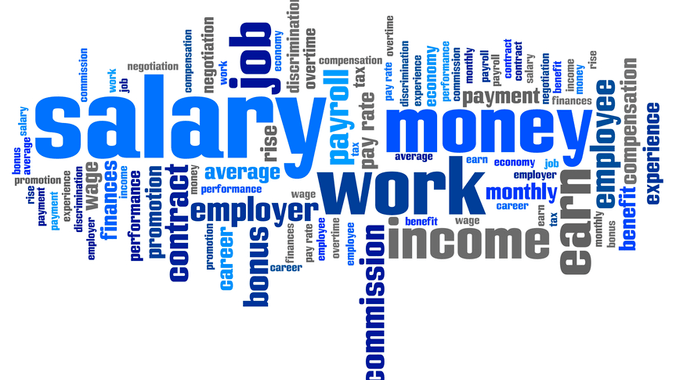When you start your contracting you will need to complete timesheets and get them signed. Then you will need to raise invoices to your clients so you can get paid - the best part! This guide explains both of these processes and by following this advice will ensure you get pay on time with hopefully no hassle.
How timesheets are used by contractors
Most agencies will provide timesheets for you to complete at the end of the week or month which are signed by yourself and your client.
If you are paid per hour then you will typically enter the number of hours worked each day. If you are paid a daily rate you will normally not need to track the hours and just enter the number of days worked each week. Check this with your agency and client.
Some timesheets have 3 counterfoils, so copies can be kept by yourself and the client with the original being sent to the agency. If this is not the case then ensure you take a photocopy of the timesheet and ask the client to also sign the copy. some agencies use online systems to capture the data, which is then digitally signed off by the client. Just make sure you end up with a copy yourself that is signed.
If you make a claim for overtime, it is important to clearly show it on the timesheet, since it can be one of the most common problems arising in the processing/payment of timesheets.
If you are working through your own limited company, outside the scope of IR35, you should prepare your own timesheets in addition to anything you may complete for the agency. This “paperwork standardisation” within your own limited company, is a pointer towards you running your own business, as opposed to simply completing the documents prepared by the agent (as an employee/IR35 caught person would do).
Preparing and sending an invoice
Ah, the satisfying part of contracting... billing the client!
After getting the timesheet signed you will need to create an invoice and send it to the client.
If you are working through an umbrella company they will ask you to send or fax them the timesheet so they can prepare an invoice. If you are working through your own limited company you will need to prepare the invoice yourself. Many accountancy firms now provide online solutions that have invoicing capabilities built in, or you may be using cloud based accounting software. Alternatively you can just write one in Word or Excel.
Invoices to your agency should show the following information:
- Company name.
- Full postal address of company and telephone number.
- Invoice date.
- The invoice number
- Due date for payment.
- Charge period.
- Number of hours / days being charged.
- Rate per hour/day (as per the contract).
- The total value of time charged.
- Expenses chargeable to the agency/client. [There are rarely any.]
- Total net value of invoice for VAT (time charges plus expenses).
- The amount of VAT charged at the standard rate of 20%.
- Total invoice value including VAT.
- The company VAT number if the company is VAT registered.
- Terms of payment.
If you can send your invoice on company headed note paper then this helps with IR35 issues by showing that you are in business on your own account.
Here is an example of an invoice:
|
Wicked Solutions 50 Software Drive London E1 3FR Tel: 0208 555 555 Company #:112334 VAT: 66-777-888 |
||||
| Invoice Number: | ABC001 | |||
| Date: | 20 December 2004 | |||
| Due Date: | 20 January 2005 | |||
| To: | ABC Ltd | |||
| Fees: | Contracting Services | |||
| 20 days @ £600 per day | £12,000.00 | |||
| Sub Total | £12,000.00 | |||
| VAT @ 20% | £2,400.00 | |||
| TOTAL | £14,400.00 | |||
| Payment terms: | Payment within 30 days. |
|||
|
Money transfer to the account below: Wicked Solutions Ltd Sort Code: 20-21-22 Account No: 12345678 |
||||
Some agencies also require additional information on the invoice to assist their processing procedures. E.g. Company number and bank details.
Upon completion of the invoice it should be posted to the agency together with the signed timesheet.
Getting your invoice paid
Most agencies apply strict payment deadlines, so ensure you get your timesheet to them on time to avoid any late payments.
Upon receipt of your timesheet and invoice the agency will then typically pay you within a week after they have billed the client with their margin on top.
This quick payment can be quite useful for the first time contractor who might not be able to wait a full month before being paid on their first contract.
Most agencies use factoring organisations which means they get paid before they receive the money from the client. The factoring company then chases the client and takes a small percentage of the total invoice.
You should not have to wait for the client to pay the agency before you are paid. If an agency attempts to hold money back for this reason then start getting worried since it is not common practice.
What should you do if you don't get paid on time?
The golden rule is not to let things slip and not to accept poor excuses ("lip service") for non payment. Not being paid on time should ring alarm bells. If an agency or client goes bust you aren't going to get your money, so it's always best to chase as soon as you can and be clear that you will not accept this.
There is an exact late payment process you should follow which we have explained in detail here.

